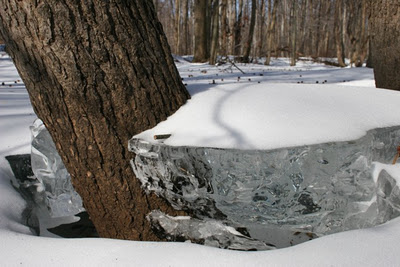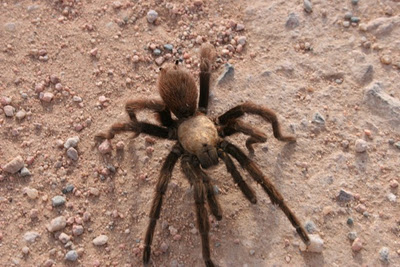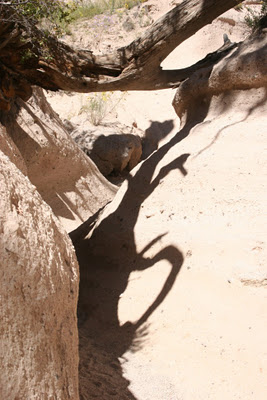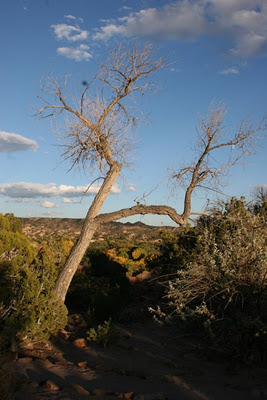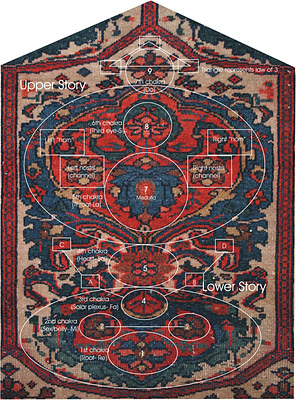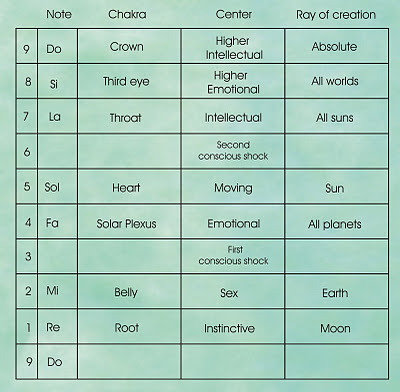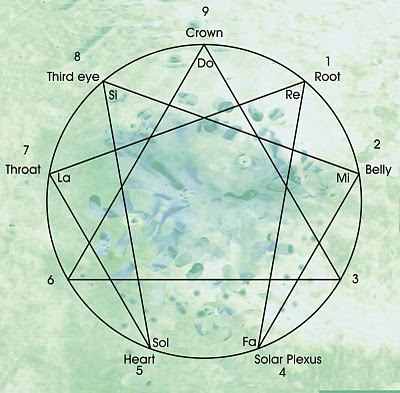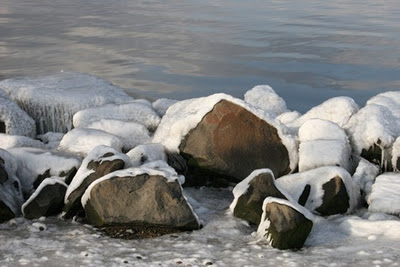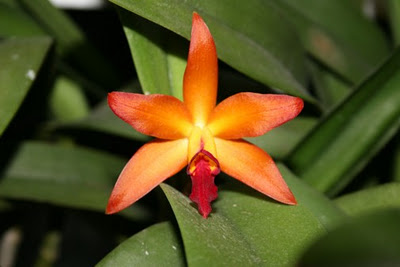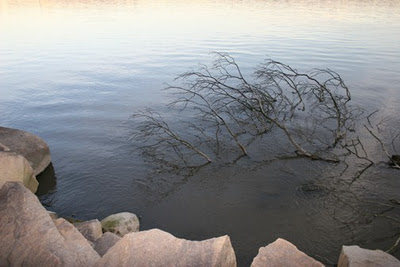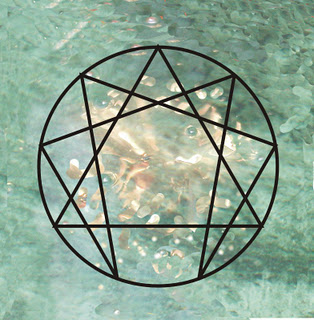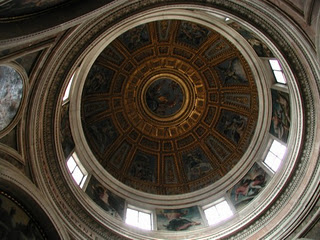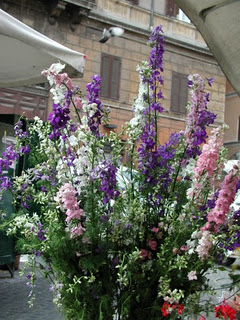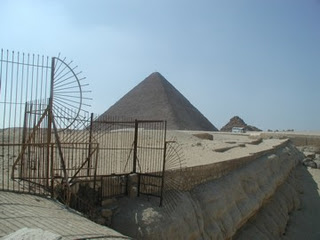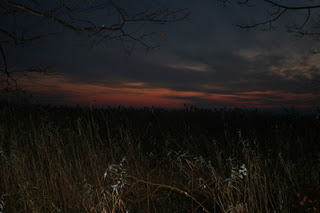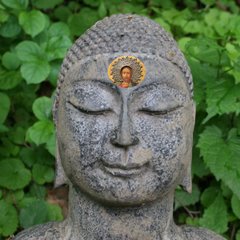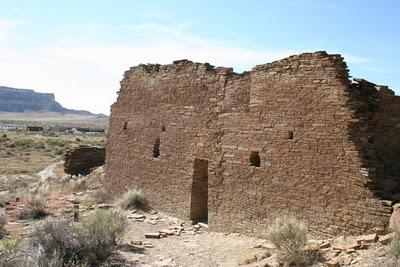 I have been blogging on this blog for over three months now, and, as
scattered as the themes may sometimes seem to be, an overarching theme
seems to me to be emerging from the posts. Hence the picture for this
post, a structure in Chaco Canyon, New Mexico. Like my own structures,
it is a bit worse for wear, but it will have to do.
I have been blogging on this blog for over three months now, and, as
scattered as the themes may sometimes seem to be, an overarching theme
seems to me to be emerging from the posts. Hence the picture for this
post, a structure in Chaco Canyon, New Mexico. Like my own structures,
it is a bit worse for wear, but it will have to do.First, my aim is to speak from within my own experience. After many years of exchange with others on spiritual matters, it strikes me that this is the most vital responsibility each of us takes upon themselves as we meet each other face-to-face in mutual effort. Granted, in this case face-to-face means reader-to-blogger, but the responsibility still stands.
This idea of speaking from within our own experience seems so important to me that I considered writing a blog just on this subject alone. One average thought that legitimately originates from within one's own experience, from within one's own organism, one's essence, is worth 10,000 brilliant ones imported and grafted on to this structure we call personality.
So wherever possible I try to speak about my life and my work as simply and as honestly as possible. I cannot always be smart or clever or probably even honest, but I can do my best to offer you what I have, no strings attached.
Now, as to the overarching theme. I formulate it thus:
What is Nature?
Of course this is a huge question, and we can comfortably agree there is absolutely no possibility of answering it in a blog, or anywhere else, for that matter. However each of us can contribute to the investigation of this question, and in my investigation of spiritual questions, worldly questions, and questions of biology, I continually tend to seek the common threads that bind them together. Above all, I am looking for a piece of fabric that speaks to me about what we are and why we are here.
There is something vast and mysterious taking place within biological life on this planet. Life, in all its variety, functioning as vessels, taking in the trillions of billions of unique conscious impressions of life. If one pauses for a moment to understand the number of impressions being ingested -- yes, that's correct, ingested --and processed on this planet in any given moment, the idea is immediately staggering.
What is this process? What is it creating?
Consciousness is a single living organism; it appears as many different organisms to us, but both our imagination and our perception are limited by our scale and the brevity of our lives. This single organism has been developing and changing itself for billions of years through a process that we call evolution. It contains life and death within itself; in that fact alone it appears to have qualities better ascribed to Gods than to nature. And here, perhaps, the animistic religions had it right-- something resides within nature so much greater than ourselves that to call it God seems reasonable, even if, in order to do so, we have to transport ourselves to the level of galactic clusters and beyond to appreciate just how vast nature really is, and how far beyond any understanding man can ever develop.
In Dogen's "Sutra of mountains and water" (Sansuigyo) he expounds on the relationship between nature and Buddhist thinking. They are intimately related. Christ drew analogies from many sources in nature for his parables; again, it seems impossible to separate the questions of Christianity from the questions of nature. And Gurdjieff, with his vast structural analysis of the cosmos and everything in it, tied us inexorably to the questions of what nature is and what our place in it is.
For many years, it has been my belief that a careful study of organisms, both our own and others, can reveal relationships that will tell us a great deal about the various levels in the universe and how they interact.
We are much better equipped to understand the levels below us than the ones above us; perhaps that goes without saying, but I believe it needs to be said in a world where everyone wants to reach upwards to God before they check to see where their feet are on the ground. We are given this animal nature we dwell within quite specifically in order to explore what it means and to use it as a tool for our development. We need to develop an intimate relationship with it and understand it in as many particulars as humanly possible. It may be that in our animal nature and in our very mortality itself lie answers to questions that we believe we have to seek from the Angels.
Angels are vastly superior beings whose presence alone, were it not for their reassurances, might cause us to go mad. They are very busy with matters that will never concern us at our level, which is why they do not visit men often- you'll notice that they visit men almost exclusively when they are sent- and generally have little to say to them when they do. It is sheer arrogance on our part to seek their counsel or assistance.
On top of that, it is probably best we do not. Take note that in Gurdjieff's cumbersome but stunning classic "Beelzebub's tales to his Grandson" angels actually caused the original erroneous conditions on planet Earth- so much for any dreams about the infallibility of higher states of being- and the higher beings of Beelzebub's race resident on earth who tried to correct them botched the job in one way or another.
It is even more sobering to consider that in the end, it turned out that God had to go to the extreme of incarnating as a human and having himself nailed to a cross in order to fully understand just what was necessary to repair the damage that we humans have done to ourselves.
That is not to say Angels are without mercy, au contraire. Compared to us their mercy is infinite. But it is not a mercy we can understand, because it is unconditional, and everything about us begins with conditions.
Here on this planet, I do not wait for the Angels. I'd like their help, but cannot rely on it. I see that it is true that I am helpless, and- without the Grace of God- alone.
That Grace expresses itself within the context of nature and my impressions of it. In this organism, with this beating heart and these breathing lungs- if there is a God, this is where He will find me, within this vessel.
So if I am not examining the vessel -- examining its nature, examining its makeup, examining its contents -- I cannot know how prepare a place in my heart for God.
So there are the three legs of the stool:
To speak from within one's own experience,
To seek an answer to the question, "what is nature",
To make an effort to discover what it means to prepare a place in our hearts for God.
And if you are thinking here that this man's reach surely exceeds his grasp, you are correct.
Mea culpa.

